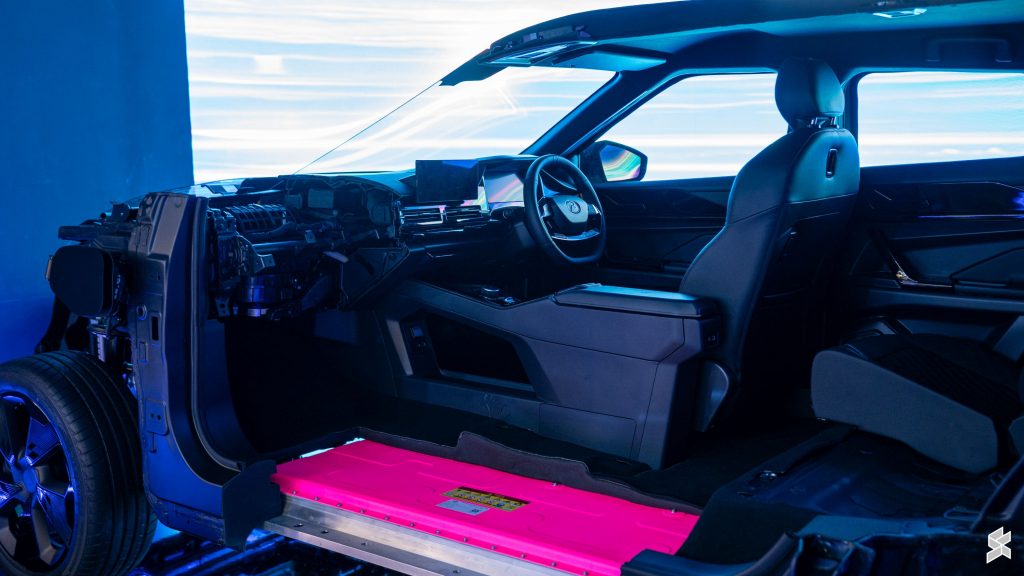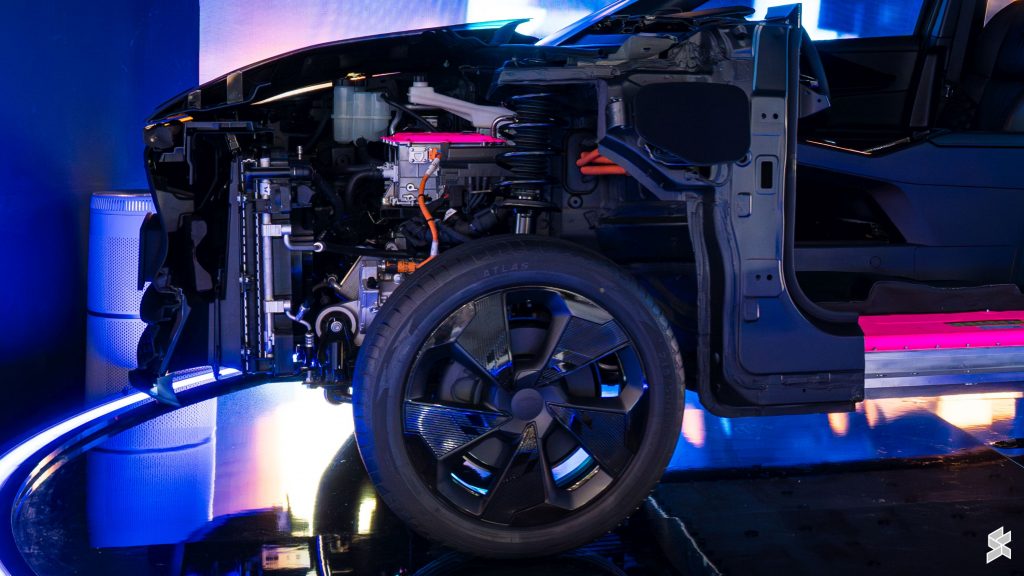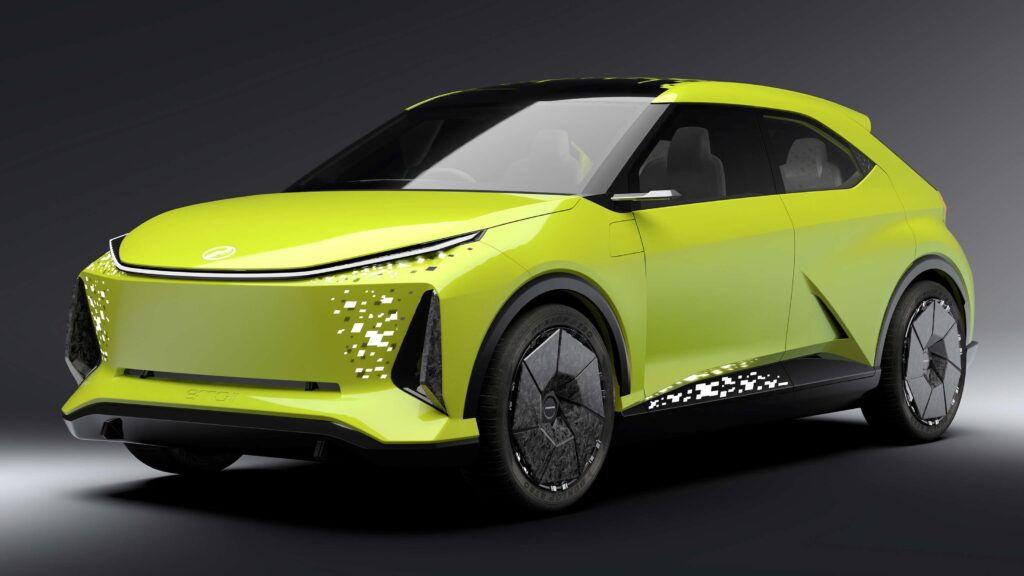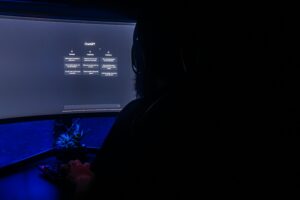The electric vehicle (EV) market in Malaysia is preparing to change, and the company pioneering this new wave of EVs is Perodua — Malaysia’s largest automobile maker.
With the launch of its first locally developed EV just around the corner, Perodua is not only launching a new vehicle but also a new ownership model: Battery as a Service (BaaS). This may change the way people in Malaysia think about and adopt EVs for years and decades into the future.

What Is Battery-as-a-Service?
Essentially, Battery-as-a-Service (BaaS) decouples the EV’s battery ownership from the vehicle itself. Customers don’t buy the battery, they lease it, paying a fixed monthly fee of an estimated RM200 per month.This model removes one of the biggest cost barriers to EV adoption: the battery pack, which typically accounts for 30 to 40 percent of the car’s total cost.
Perodua’s BaaS model means EVs have a base price of below RM80,000, making them competitive among mid-rangeinternal combustion engine ICE models. Perodua effectively helps to not only lower the price of an EV but also helps to alleviate the concerns of consumers super worried about battery degradation or battery replacement costs by separating their ownership.
Why This Matters to Malaysian Drivers
Battery life degradation is one of the greatest concerns for prospective EV buyers. Like all batteries, EV batteries will gradually lose their ability to hold charge over time, limiting vehicle performance and resale value. Perodua’s BaaS model addresses this issue directly. Under the leasing/contract model, battery health/resource power is essentially the responsibility of the vehicle manufacturer. If the battery capacity is reduced beyond an agreed threshold level in the leasing contract, Perodua will replace it at no additional charge to the owner.
Moreover, BaaS supports better long-term resale values. Since the battery is not part of the car’s resale transaction, buyers won’t be deterred by the fear of a used vehicle with a weak battery. The arrangement simplifies ownership while protecting long-term value.
This model also introduces the possibility of battery swapping or quick servicing, with Perodua promising that a battery service swap could take as little as 30 minutes at selected centers.

What Will Perodua’s EV Look Like?
The upcoming Perodua EV is expected to be a B-segment fastback crossover, blending SUV proportions with sleek urban styling. Based on early previews, it will feature a 50kWh lithium iron phosphate (LFP) battery by CATL, targeting a real-world driving range of around 400 kilometers.
The EV is locally engineered from the ground up — not a rebadge of a Chinese or foreign model. This includes the entire platform, software, and design. It’s a major step forward for Malaysia’s automotive technology sector, highlighting Perodua’s push toward full in-house innovation.
With production set to begin in Q4 2025 at its Sungai Choh plant, the EV will roll off the line at an initial monthly rate of 500 units, scaling up to 2,000 units as demand increases.
Challenges Ahead for the BaaS Model
The concept is ambitious, but there are still a few concerns. Malaysian consumers have long been resistant to making long-term monthly commitments. Just like how postpaid mobile contracts were once disliked, a battery leasing will not suit every buyer’s lifestyle. Clearly, whether it be pricing, or factual contract terms and service guarantee, the plans must be very transparent and trust-inducing.
There are also infrastructure questions. Will battery swaps or servicing be available nationwide? Will battery performance be standardized and regulated? These operational factors will influence the model’s success.
Furthermore, as battery prices continue to fall globally — predicted to dip below US$100 per kWh — some consumers may prefer full ownership, especially if future EVs become cheaper to build and buy.
Regional Trends and Industry Context
Perodua isn’t the first to explore BaaS. Similar models have seen success in China with brands like NIO, and even motorcycle startups like Oyika are experimenting with battery swapping networks in Southeast Asia. However, Perodua is the first Malaysian automaker to apply this model to four-wheeled EVs on a national scale.
By pursuing BaaS, the company not only acknowledges its desires and needs, but its decision is also influenced by an emerging trend, i.e., EV ownership is transitioning from a product-based experience to a service-based experience. As energy storage and vehicle software continue to advance, the vehicle will no longer exist as another machine; it will instead be an opportunity for integrated mobility services.
Why This Could Be a Tipping Point
Perodua’s BaaS model is not just a pricing strategy — it is a reimagining of the EV ecosystem in Malaysia. By eliminating upfront cost barriers and assuming ownership of battery health, it reduces the psychological and financial friction that inhibits a lot of individuals from switching to electric.
This could really speed up EV adoption, especially with younger and price-conscious buyers who value low-maintenance and future-proof transport. It also supports the Malaysian government’s Low Carbon Mobility Blueprint, which seeks to significantly expand the use of EVs in Malaysia in the coming decade.
Perodua’s Battery-as-a-Service solution could completely change Malaysia’s EV landscape. If the company can reduce entry costs, take care of long-term battery maintenance, and provide a local EV alternative, it positions itself as a mobility innovator and not just an automaker.
The future will hinge on consumer response, policy support, and infrastructure readiness. Yet, one thing is certain: it can no longer be treated as theory. With Perodua’s undertaking, we are now becoming a reality in Malaysia.
🚀 Electrify Your Drive with Malaysia’s Automotive Future
📞 Explore Perodua EV ownership and join the electric revolution today.





